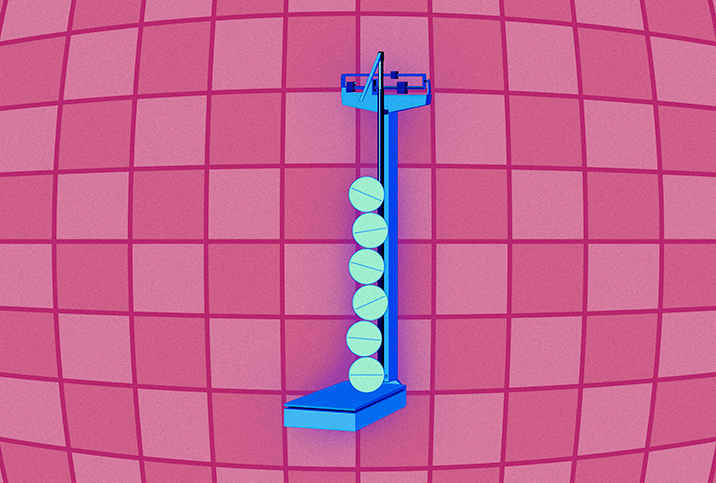Does Birth Control Make You Gain Weight?

Many birth control pill users experience unwanted side effects. Women who took a birth control pill every day were found to have higher rates of anxiety, fatigue, low libido and emotional changes, according to 40 years of research.
Nausea, bloating and spotting between periods are some of the most commonly reported side effects, but one question remains: Is birth control linked to weight gain?
The research
It's theorized that birth control pills cause weight gain because they contain estrogen. It's believed high levels of estrogen can increase water or fluid retention, which in turn can cause weight gain.
Enovid, the first hormonal contraceptive, contained 150 micrograms of estrogen, which was a much higher dose than needed to prevent pregnancy. As a result, side effects from the pill were more serious and greatly increased the chances of health complications, including heart attack and stroke.
Most birth control pills now contain 20 to 50 micrograms of estrogen, and this lower dose is unlikely to cause significant changes in weight. However, some people may notice a slight increase in weight gain when they first start the pill.
"People may experience an increase in water weight when they begin a new birth control as the body adjusts to the new hormones, but that typically resolves within three months," said Cristin Hackel, W.H.N.P.-B.C., a nurse practitioner and medical provider at Nurx, a telemedicine company based in San Francisco.
It's common for women to mistake their birth control pills for the cause of their weight gain, but there are many other factors to consider first. Diet, lifestyle, medical conditions, stress and other medications are more likely to be the cause of weight gain.
Fluctuations in your weight from week to week is also common—and completely normal. The only time when it should be cause for concern is if your weight increases dramatically over a short period of time, especially if your diet and activity have remained the same. If this occurs, it's important to consult your doctor in case you have an underlying condition.
One type of birth control is an exception
While there is limited evidence to suggest birth control pills contribute to weight gain, another type of birth control might, according to Hackel. Research indicates that most users of the Depo-Provera shot who gain excessive weight experience more than a 5 percent weight increase in the first six months. Excessive weight gain is probable for some women, but not a certainty for all users, the study concluded.
"The mechanism of weight gain was seen to be via changes in appetite," explained Jennifer Lincoln, M.D., an OB-GYN who practices as an OB hospitalist in Portland, Oregon.
Due to limited studies, it's unclear whether the weight stabilizes after the six-month mark, or whether simple dietary changes can help reduce the initial weight gain.
Managing the weight gain
Even though significant weight gain is very unlikely to occur due to birth control pills, bloating can give the impression of weight gain. Most of the time, bloating is caused by gas, but it's also a common side effect of the pill because estrogen can lead to water retention.
In many people, bloating subsides within the first three months of starting the pill. However, in some people, the bloating can be persistent and accompanied by severe nausea and appetite changes. If this is the case, it may be time to switch birth control pills. These side effects often are an indication that this particular brand isn't agreeing with your body.
Luckily, there are numerous brands out there and switching to a different one can reduce side effects, including bloating and appetite changes, which should reduce any chance of weight gain.
If the weight gain is caused by an increase in appetite due to the birth control shot, then Lincoln suggests managing your appetite through diet.
Eating nutrient-dense foods and high-protein snacks can keep you feeling full for a longer time and increase your energy levels. Try to limit sugar and avoid snacking throughout the day, as this is likely to contribute to weight gain and can cause additional bloating and gas.
Keeping a symptom diary and monitoring any weight changes from week to week can be very helpful for some people, as well. Any major fluctuations or changes in appetite, including when they occur, could help you rule out other factors.
Lincoln reiterated how important it is to always listen to your body. If you have gained weight and are sure there have been no changes to your diet, activity, stress, sleep or other medications, and you suspect your birth control is to blame, talk to your healthcare provider. They can discuss other hormonal and nonhormonal options for you and note if there is any improvement.


















